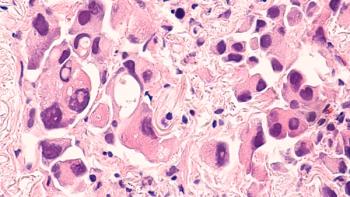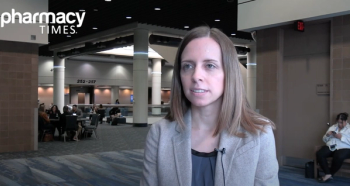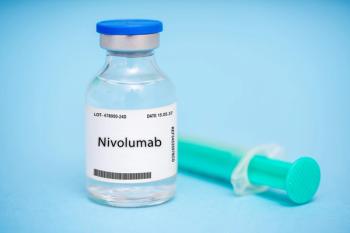
Intranasal epinephrine spray offers a needle-free option for anaphylaxis treatment.

Intranasal epinephrine spray offers a needle-free option for anaphylaxis treatment.

Approximately 61% of individuals said respiratory syncytial virus (RSV vaccination for adults 60 years and older is effective.

Sunvozertinib was originally approved in China, making it the world’s first and only oral treatment for these patients.

Management of acute otitis media in children involves evidence-based antibiotic prescribing.

A pooled analysis showed regular consumption of coffee and tea was associated with decreased risk of certain cancers.

Calcipotriol in combination with 5-FU triggers Th2 immunity to prevent skin cancer.

The pandemic’s aftermath left lasting tensions in health care.

The analysis shows patients achieved deep and durable responses despite being ineligible for the CARTITUDE-1 trial.

Pharmacists play a vital role in patient advocacy and health care collaboration by ensuring safe medication management, facilitating seamless care transitions, providing education, promoting adherence, and fostering compassion to enhance therapeutic outcomes and patient wellness.

Early diagnosis of chronic kidney disease (CKD) can help optimize treatment and manage the disease to prevent further decline.

Pharmacies can strategically invest in AI technologies to streamline operations and improve patient care while addressing cost challenges and maximizing return on investment in 2025.

Treatment with IVIG leads to high responses 6 months following the initiation of therapy.

New medications like glucagon-like peptide-1 agonists and resmetirom show promise in reversing fatty liver disease and preventing progression.

Pharmacists should be aware of the impacts that anemia in patients being treated for cancer has on daily activities and overall quality of life.

Certain laboratory tests indicate stronger predictions for hospital stay, suggesting pharmaceutical intervention could help reduce the length of cardiovascular-related hospital stay.

Patients with hormone receptor–positive and human epidermal growth factor receptor 2 breast cancer are particularly at risk.

Patients with relapsed, refractory disease achieved deep, durable responses with equecabtagene autoleucel.

Over 70% of children and young people with long COVID reported improvements in their symptoms within 24 months of their initial positive SARS-CoV-2 test.

The model, Deep-IO, shows improved specificity and sensitivity compared with existing predictive biomarkers.

The regulatory decision marks a significant step forward in the treatment of non-tuberculous mycobacteria infections.

Pharmacists can educate patients on controlling risk factors and stay up-to-date on emerging therapies like SGLT2 inhibitors and finerenone that can slow disease progression.

The approval offers patients with solid tumors an alternative to intravenous PD-1 inhibitor administration.

Lp(a) is a critical risk factor for atherosclerotic cardiovascular disease, but current lipid-lowering therapies are largely ineffective at lowering Lp(a) levels.

Administering first-dose antibiotics to septic shock patients via IV push rather than continuous infusion could improve the speed of antibiotic delivery and reduce logistical challenges.

The potential treatments include ivermectin, methylene blue, glucagon-like peptide-1 receptor agonists, and low-dose naltrexone.

Pharmacists are crucial in educating patients, identifying eligible individuals, and promoting uptake of the newly expanded RSV vaccination recommendations for older adults.

Gecacitinib is a novel inhibitor targeting both JAK and ACVR1.

Pharmacists can significantly improve chronic obstructive pulmonary disease (COPD) management by promoting non-pharmacological interventions.

Factors associated with intravenous immunoglobulin (IVIG)-related adverse events include older age, dehydration, and administration of multiple IVIG infusions.

Pharmacists are encouraged to work closely with health care providers to ensure appropriate use of high-cost Intravenous immunoglobulin (IVIG) therapy for BK nephropathy.